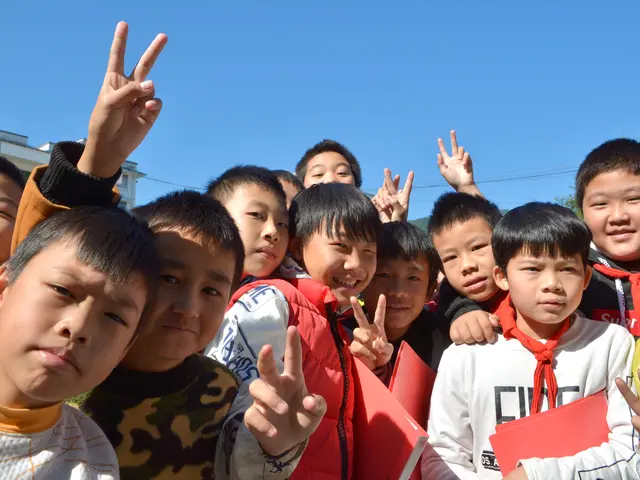More cases of medicines being administered illegally to preschoolers are emerging in China, as the crisis of confidence in kindergarten managers expands.
Two kindergartens in Xi'an -- Hongji Xincheng and Fengyun -- were accused last Thursday of having given antiviral drugs to children since 2008 and similar cases are now being reported from other parts of the country. The latest complaints originate in northeast China's Jilin and central China's Hubei provinces, where parents also claim their children were given antivirals.
One of the concerned parents from Hubei who refused to be named, said teachers had asked kids to take "bitter-tasting white tablets" every time the weather changed. Some children have complained of leg pains, nose bleeds, itching and genital inflammation. According to the investigation, kids were fed antivirals to boost their immune systems and guarantee attendance. Attendance in such schools in China is directly linked to school revenue.
Angry parents are concerned for both the physical and mental well being of their children and dissatisfaction is running high with a preschool system dominated by private kindergartens which are poorly funded, poorly managed and frequently in a bad state of repair.
"Teachers told my child the pill was good for him but should be kept secret. They have been taking it for nearly three years," said Zhang, a parent from Shaanxi Province. Zhang said even those whose kids had already left the kindergartens in question were now demanding physical examinations, the grandson of Sun, 61, among them. The nine-year-old boy attended one of the suspect kindergartens and has been hospitalized for myocardium damage.
"I was extremely displeased," Sun said: "My grandson frequently went to the bathroom when doing his homework. At the beginning, I supposed he was doing it because he did not like studying."
Yu Feng of China Pharmaceutical University said there is no direct evidence to link moroxydine ABOB, the antiviral drug in question, with retarded growth and development, but children are more susceptible to side effects caused by medicines than adults. As opposed to physical health, some are concerned for the children's mental health. Many have been forced by their parents to attend protests outside schools and government buildings.
"They are just kids and do not understand what has happened. I do not think it wise to involve them in the dispute and show them the evils of society so early," a parent surnamed Xie said.
"How a society treats the elderly reflects how civilized it is, and how we treat our kids decides the future," said Xia Xueluan, a sociologist at Peking University. Physical harm, fear and insecurity suffered in childhood affect health and personality in the future, Xie added.
A post widely circulated on social network Sina Weibo told parents to ask three questions when they picked their kids up from school: Were you beaten? Did anyone touch your private parts? What did they feed you?
China's preschool system has a long history of avoidable problems including food safety and physical abuse. Public trust in the system has worn very thin.
The birth control policy was recently changed to allow more couples to have a second child, and preschool education has become a high priority for young parents, already under tremendous pressure and often detached from their own parents back in their hometowns. Chinese grandparents traditionally played important roles in care of preschoolers.
"They should send their babies to kindergartens based on trust, but now they are forced to resort to monitoring equipment," said Yuan Xu, head of Guangxi College for Preschool Education.
The official statistics show that Guangxi has 7,554 kindergartens,6,900 of which are private. Of these, 4,000 plus are operating without licenses. With poor infrastructure, unqualified teachers and shortcuts on safety, many private kindergartens are nothing more that sources of profit for their ownersand wholly neglect their fundamental function as educational institutions, Yuan said.
The number of unlicensed private kindergartens seems to be a direct result of a lack of alternatives in preschool education. "The authorities did not expect so many preschool children decades ago. They failed to make a long-term plan for expansion of kindergartens," said Xiong Bingqi, deputy head of the 21st Century Education Research Institute.
China's 1980s baby boomers are now parents and it can be very difficult to find a kindergarten. Regulations on private kindergartens focus onenrolment procedures and there is a clear need for the government to tighten supervision on their daily management. Besides the government, Xiong believes parents must also play a role in preschool management.
"Kindergartens should not be driven by profits. They need appropriate support in funding and teacher training," Xiong said. His view is echoed by Xia Xueluan, who believes the aged and young should be the primary concern of society and preschools need the involvement of society at large, as well as the government.
Considering difficulty in finding a new school, some parents have even sent their kids back to the same kindergartens, now the staff involved are in police custody. Some things are back to normal, but some things are not.
"School bus safety, abuse, drug scandals... What will be next?" a parent asked.
 简体中文
简体中文



